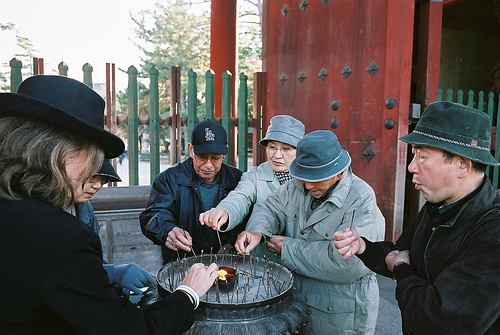Ab uno disce omnes. – From one, learn all. – Virgil
What does that mean?
This has usually been translated to mean that we would be well served to learn the general rule which governs most situations.
We must also remember that where there is a rule, there is always an exception, and that we must remain vigilant for these. Yet, properly used, generalizations are quite a useful tool.
The closer we are to Physics and Math, the more broadly the rules apply. The closer we get to individual people or to personal values and emotions, the less they apply.
In this we must always be vigilant, as misapplication of a generalization is a quick way to insult someone, or even start a fight. And we don’t want that.
Why is careful observation important?
In science, careful observation is critical. That is how we know the planets follow the rules. Or more precisely the careful observations allowed us to deduce the rules they followed. And when Mercury orbit was observed to be a little off, science labored until a proper correction was found.
Careful observation of rules, laws, and customs in places with which you are not familiar is a great starting point. Again, a bit of room must be left for the unexpected, the unobserved, and (of course) the exceptions. A sample size of one is not the best, but it can give you an idea of what to expect.
Part of careful observation includes noting what lead up to the event. If you were too far away to hear what was said, you would only know that there are things that, if said to a woman, will get your face slapped. If you didn’t see the conversation before it, you might not understand why she slapped him.
Careful observation is also quite useful in noticing the exceptions. If you have observed someone for years, perhaps a family member, careful observation will let you know when they aren’t feeling well. Similarly, it can help you better understand how and when exceptions to general rules occur. Pay attention.
Where can I apply this in my life?
In an ideal world, everything would be obvious or follow simple, easy to understand rules. However, that’s not how life works, at least not for me. Instead, I have to rely on my limited experience and faulty memory. I have to observe as carefully as I can, and attempt to find the closest match.
You have probably seen TV shows where such a thing results in lots of laughs from the audience. In real life, it’s a lot less funny to experience first hand, right? Again, the more predictable things are, the easier it is to make an observation and extrapolate from one case to a general rule.
However, even people like me who aren’t that into people still have to deal with them on a regular basis. And unlike electricity or software, people are very hard to find general rules which are applicable to even the narrowest of circumstances. So what are we to do when dealing with people?
We still have to observe carefully, but we must also keep our ego in check. What do I mean by that? If we are too proud to say that we don’t understand or to ask for help with understanding an action or custom, we are doomed. Things will not go well for us if we let our ego get in our way.
That said, there are still plenty of other stumbling blocks out there, especially if it is unfamiliar territory to you. There are parts of the world where a nod doesn’t mean yes, but no. Not paying sufficiently careful attention could lead to all kinds of misunderstanding and hopefully nothing more.
We all have preconceived notions about what to expect in certain situations. That’s fine, as long as you are always in the same place and with the same people. Applying those rules and expectations in a foreign land, or in a different situation is looking for trouble, or at least a misunderstanding.
Can you think of a time when you got it wrong? A time when you applied a rule, only to find out that this wasn’t a situation where that rule applied? What happened? Were you able to recover, or was it a real mess? perhaps it’s just me, but that’s how I’d sum up my dating experiences.
The tricky part is determining when to apply a rule, and when not to do so. The same goes for expectations or preconceived notions. To note the minute differences, which are often your only clue, can be difficult. But if you are a careful observer, you can usually spot something to alert you.
What you do then is up to you and your experience. Do you stare? Do you ask a question? Do you try to leave the area? Or do you simply move forward, using your instincts? The answers depend on you and the situation, but I hope you will both try to find general principles and rules, and their exceptions.
From: Twitter, @philoquotes
confirmed at : http://en.wikiquote.org/wiki/Learning 5th from bottom, AEneid book II, 65
Photo by kurisuuu

